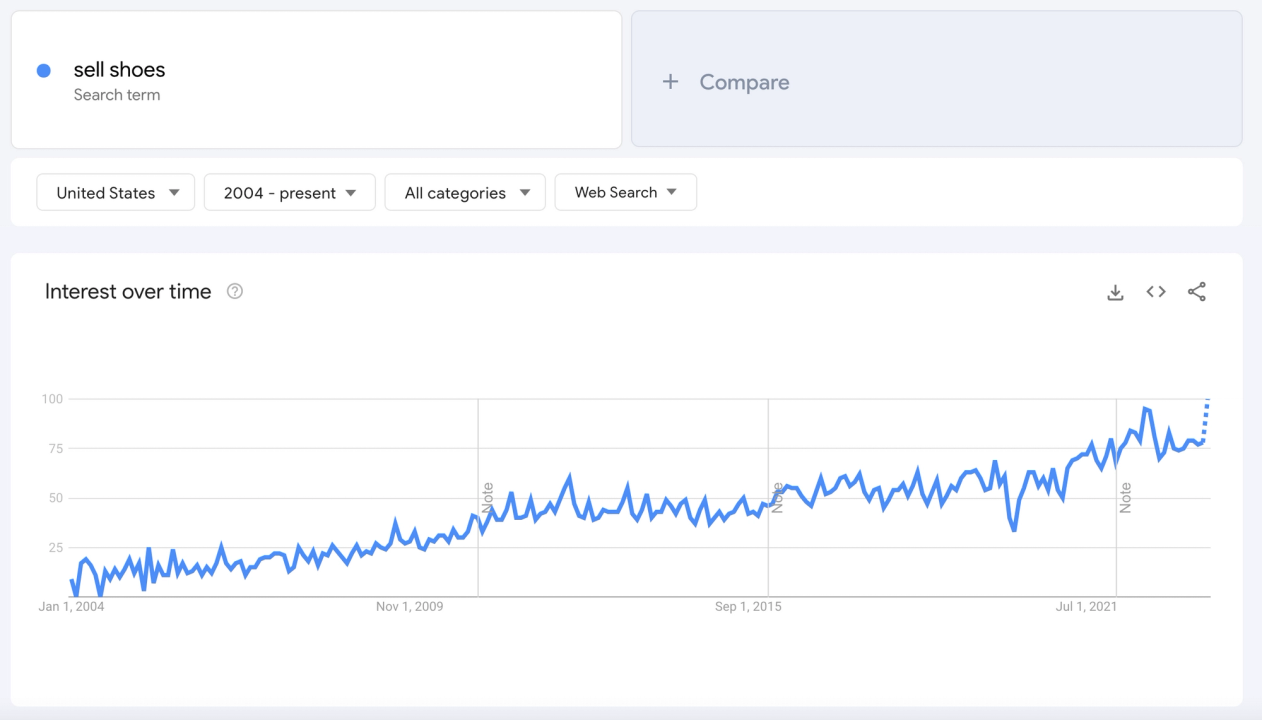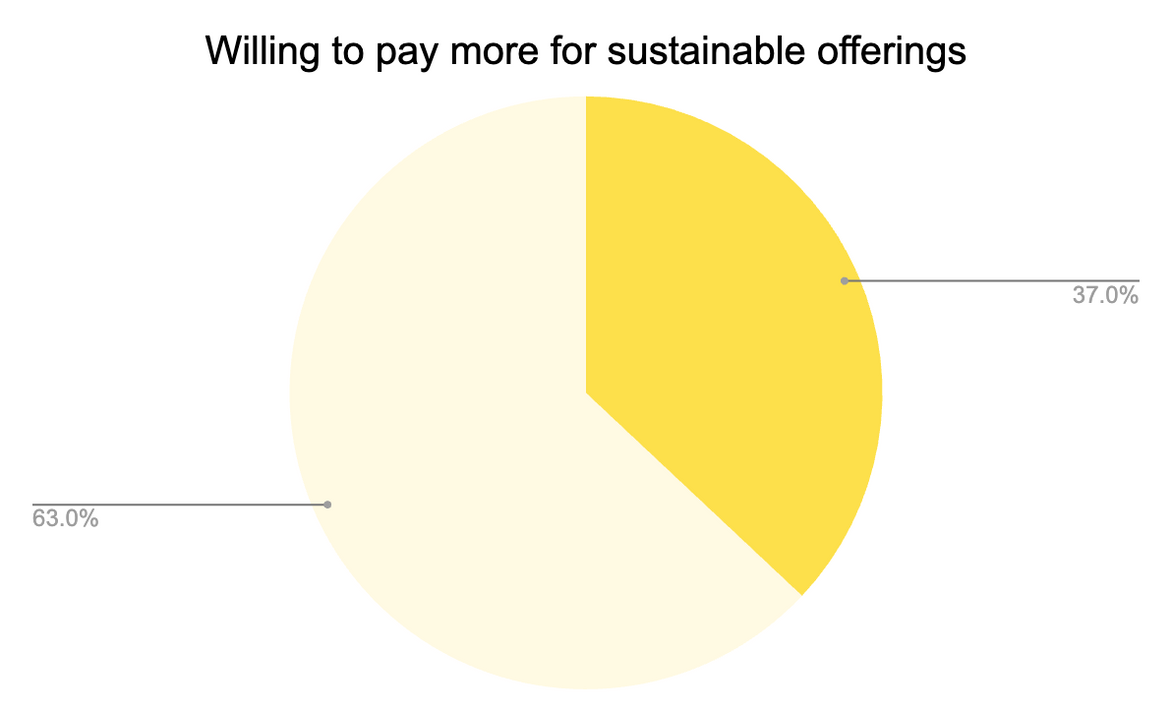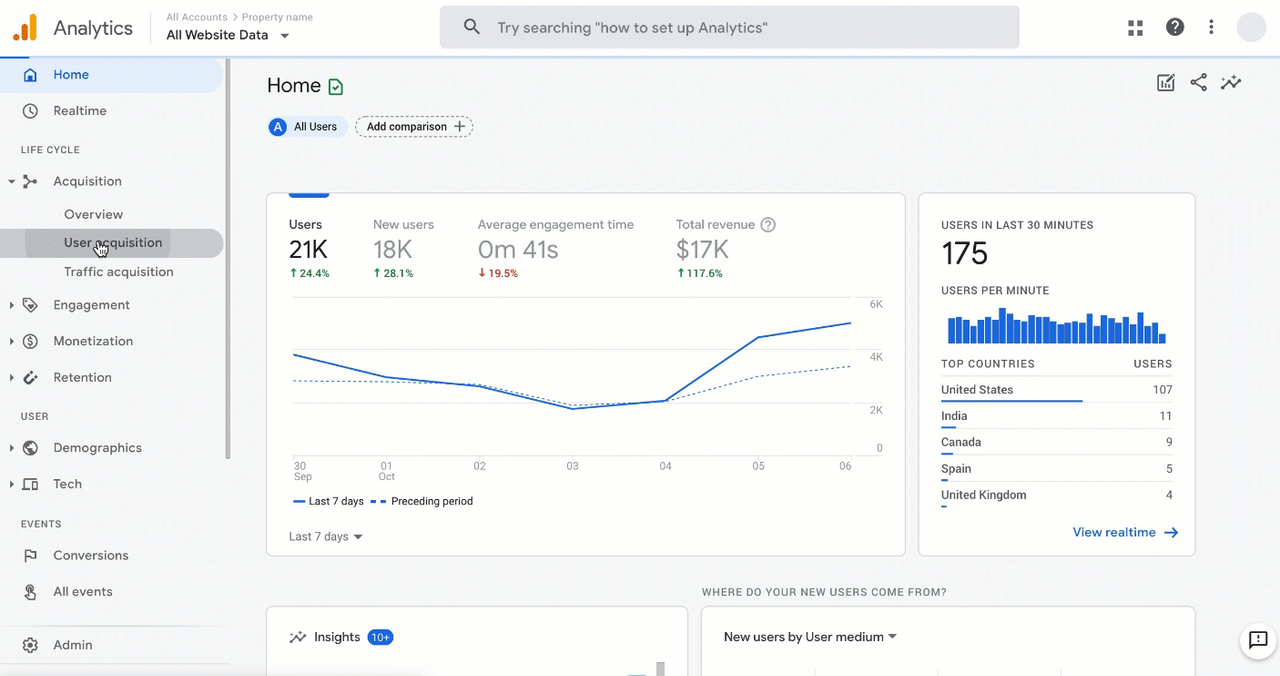How to Start a Shoe Business Online

by Eric Lam - Published 8/7/2023
by Eric Lam - Published 8/7/2023

In the e-commerce realm, the footwear industry is witnessing phenomenal growth.
The global online footwear market was valued at $67.8 billion in 2019 and is expected to grow at a compound annual growth rate (CAGR) of 8.1% from 2020 to 2027. The rise of e-commerce platforms, enhanced logistics services, and the sheer convenience of online shopping have all played a pivotal role in this expansion.
If you're keen to step into the lucrative world of online shoe sales, this comprehensive guide on how to start a shoe business online will give you the leg up you need to launch your venture.
Why Start an Online Shoe Business?

With the ever-growing acceptance of online shopping, the footwear industry has seen a significant shift from brick-and-mortar stores to online platforms.
The convenience of shopping from home, the extensive variety of styles and brands, and the availability of size guides and customer reviews make online shoe shopping an appealing proposition for consumers. An online shoe business can thus offer a profitable venture for budding entrepreneurs.
Furthermore, running a business online can save overhead costs associated with physical stores, such as rent and utilities, giving your profit margins a welcome boost.
Understanding the Market
Entering the online shoe business requires an in-depth understanding of the market dynamics. You need to know the key players, current trends, and market projections. A study by Grand View Research highlighted that athletic footwear is expected to expand at a CAGR of 7.1% from 2020 to 2027.
This could be an area to consider if it aligns with your business vision. Also, take note of gaps in the market. Is there a particular style or size range that is underserved? Recognizing such opportunities can give you a unique edge.
Identifying Your Target Audience

Knowing your target audience is pivotal to the success of your business. Dive into market research to understand the demographic and psychographic characteristics of your potential customers.
Their age, income level, lifestyle, preferences, and buying habits should inform the range of products you offer and your marketing strategies. For instance, if you're targeting millennials, note that they value quality and sustainability.

A study showed that 37% of millennials are willing to pay extra for sustainable offerings.
Creating Your Unique Selling Proposition
A unique selling proposition (USP) is what differentiates your business from the competition. It could be your unique designs, affordable prices, exceptional quality, or unrivaled customer service. Your USP needs to be compelling enough to attract customers and drive loyalty.
Businesses like TOMS Shoes have built their USP around social responsibility; for every pair of shoes purchased, TOMS gives a pair to a child in need. This has resonated with socially conscious consumers and set TOMS apart in the crowded shoe market.
Manufacturing Your Own Shoes

The decision to manufacture your own shoes brings the advantage of complete control over quality, design, and production timelines. However, it requires significant capital investment and knowledge of the footwear manufacturing process.
If you choose to go down this path, partnering with a reputable manufacturer who shares your vision for quality and ethical production will be key. You could also consider attending footwear design and production workshops to enhance your understanding of the process.
Working With Suppliers
An alternative to manufacturing is sourcing your shoes from established suppliers.
This option is less capital intensive and allows you to offer a variety of styles and brands.
It's crucial to choose suppliers who adhere to high quality standards and reliable delivery schedules. Working with international suppliers can give you access to a wider variety, but remember to factor in additional costs such as import duties and longer shipping times.
Logo and Design

Your logo and overall design aesthetic are key elements of your brand identity. They should reflect your brand values and appeal to your target audience. For example, if your target audience is young and trendy, a modern and vibrant logo may be appropriate. Conversely, if you're targeting a more mature, luxury market, a sophisticated and elegant logo may be a better fit. Hiring a professional graphic designer could be a worthy investment for this crucial part of your business.
Brand Message
Your brand message communicates your business values and USP to your audience. It should be clear, consistent, and resonate with your customers.
For instance, if your USP is ethically sourced and environmentally friendly footwear, your brand message should emphasize these elements. You can weave this message into all your communication, from your website copy to your social media posts, to foster a strong connection with your audience.
Creating an E-commerce Website

Your e-commerce website is the online equivalent of a brick-and-mortar store. It needs to be functional, secure, easy to navigate, and visually appealing.
Detailed product descriptions, high-quality images, and customer reviews can enhance the shopping experience for your customers.
It's imperative to optimize your website for mobile viewing, as a significant portion of online shopping is done via smartphones.
Pricing Your Shoes
Setting the right prices for your products is a delicate balance. Prices should not only cover your costs and desired profit margins but also resonate with what your target audience is willing to pay.
It's essential to research what similar products are priced at in the market to avoid underpricing or overpricing your shoes.
If you offer unique designs or superior quality, you may be able to charge a premium price. However, always be transparent about pricing to maintain customer trust.
SEO and Content Marketing

Search Engine Optimization (SEO) is crucial for improving your online visibility. Implement SEO best practices, such as using relevant keywords and creating quality content, to improve your website's ranking on search engine results. Content marketing is an effective way to engage your audience and build credibility. Creating blog posts on topics like shoe care tips, style guides, and the latest footwear trends can drive traffic to your website and help your SEO efforts.
Social Media Marketing
Social media is a powerful tool for online businesses. Platforms like Instagram, Facebook, and Pinterest allow you to reach a broad audience and engage with them directly.
Regularly posting engaging content, responding to comments, and offering customer service via social media can enhance your brand image. Running targeted ads can also help you reach potential customers based on their interests and behaviors.
Email Marketing

Email marketing offers an effective way to communicate directly with your customers. It's ideal for sending personalized messages, like new product launches, sales notifications, or restock alerts.
Building an email list and sending regular, value-packed emails can be a significant revenue driver for your online shoe business.
Shipping and Delivery
Your shipping and delivery policies can significantly impact customer satisfaction.
Offering options like free shipping, expedited delivery, or in-store pick-up can attract customers and increase sales.
Be upfront about any shipping charges or delivery times to avoid customer dissatisfaction.
Customer Service and Retention
Customer service is key to building lasting relationships with your customers. Providing prompt responses to inquiries, resolving complaints effectively, and going the extra mile to ensure customer satisfaction can foster loyalty and encourage repeat business.
Consider implementing a loyalty program or offering exclusive discounts to reward your loyal customers. After all, it's generally more cost-effective to retain an existing customer than to acquire a new one.
Monitoring Your Progress

Tracking key metrics like sales, website traffic, and customer feedback can provide insights into your business performance. Use these insights to adjust your strategies, improve your offerings, and grow your business.
Tools like Google Analytics can help monitor your website performance, while social media platforms offer analytics to gauge your social media engagement.
Scaling Your Business
As your online shoe business grows, you may consider expanding your product range, exploring new markets, or even introducing new product lines like accessories or clothing.
Remember, successful scaling requires careful planning, strategic investment, and ensuring your operations and customer service can handle the increased demand.
Conclusion
Launching an online shoe business can be a rewarding endeavor, with immense potential for success in the booming e-commerce landscape.
By understanding the market, knowing your audience, offering compelling products, and delivering stellar customer service, you can carve a niche for yourself in the online shoe market.
With diligence, resilience, and the right strategies, you can build a thriving online shoe business that stands the test of time.
FAQs
Do I need a huge capital to start an online shoe business?
- Not necessarily. The capital needed largely depends on your business model.
Do I need to have a physical store to sell shoes online?
- No, you don't. An e-commerce website or online marketplace can serve as your store.
What is the most effective marketing strategy for an online shoe business?
- There's no one-size-fits-all answer. The most effective strategy depends on your target audience and their preferences.
Is it better to manufacture my own shoes or work with suppliers?
- Both have their pros and cons. It ultimately depends on your business goals, resources, and expertise.
How can I create a unique brand in a crowded online market?
- By offering unique products, superior customer service, or other unique selling propositions that resonate with your target audience.
Want to learn more?
We'll share with you charts, SEO data, and the businesses that are working, and how you can ultimately ride trend waves, and make over 6 figures capitalizing on your own online business.
👉Become an Exploding Ideas Pro Member to unlock our Deep Dives on how to build your own online business.

